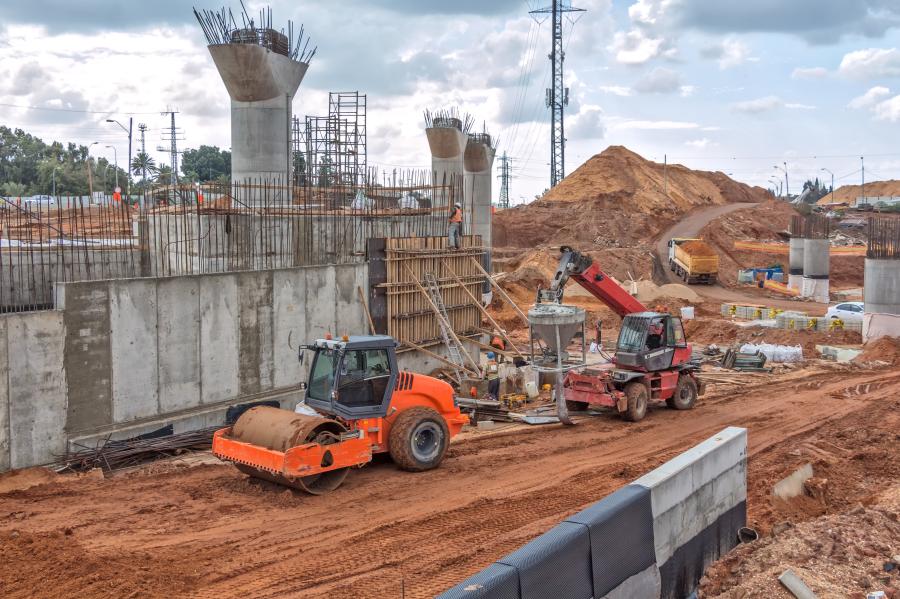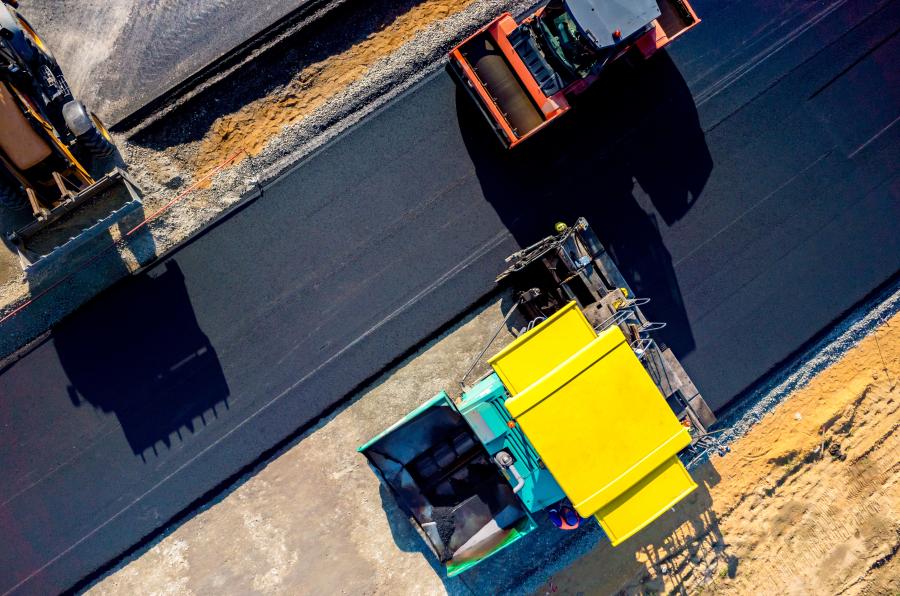Despite the rule, states and local governments have wide latitude on how they choose to use IIJA funds.
The transportation construction industry is squaring off against the FHWA in a two-year battle to get states to fix existing highways rather than expand the nation's road system with new ones. Framed as a "simple internal guidance document" in 2021, the "fix-it-first" memo has resulted in threats to challenge the rule in Congress.
Sam Graves, chair of the House Transportation and Infrastructure Committee, believes the rule would delay or deter critical road and highway expansion projects.
He said if President Joe Biden doesn't rescind the "fix-it-first" policy he will work to overturn the FHWA rule.
Sen. Shelley Moore Capito of West Virginia also promised to introduce a formal challenge to the rule.
The memo's advice to transportation leaders to "maximize the existing right-of-way for accommodation of non-motorized modes and transit options that increase safety, accessibility and/or connectivity" has made it controversial.
At the end of the day, FHWA can't actually stop states from using the $110 billion in unrestricted IIJA funds to build as many lanes as they like, said Benito Perex of Transportation for America.
Graves claimed the memo "goes far beyond mere ‘guidance' from the administration."
"Since IIJA was signed into law, the administration has repeatedly doubled down on discouraging states from expanding or building new roads they may need, despite this policy being in direct conflict with what Congress intended."
Graves added, "While I hope the administration will rescind the flawed approach, I am prepared to work with my senate colleagues to utilize the Congressional Review Act [CRA] if necessary to overturn this rule."
Drawing Industry Ire
With Capito, Sen. Mitch McConnell of Ky. weighed in on the controversy, saying "the FHWA memorandum is an internal document [and] has no effect of law."
The law "addresses infrastructure issues in a manner that reflects bipartisan input and consensus and avoids burdensome, prescriptive requirements," they wrote. "Nothing in the [law] provides FHWA with the authority to dictate how states should use their federal formula funding, nor prioritizes public transit or bike paths over new roads and bridges."
Ed Mortimer, vice president of transportation and infrastructure of the U.S. Chamber of Commerce, also downplayed the memo's authority.
"It is not law," he said. "It is not a requirement for states to follow. At the end of the day, the law is very clear that the states have wide latitude and local governments have wide latitude on how they use the funds."
Mortimer added that there is no restriction to stop a state, if they so choose, to expand their highway system.
The McConnell-Capito letter comes a little more than a week after Sens. Mitt Romney of Utah and Lindsey Graham, of South Carolina brought up the issue.
The memo "flies in the face of our intent and our needs," said Romney, while Graham said the memo "runs counter to congressional intent by discouraging the use of federal dollars by the states for new highway capacity projects."
Separately, a Jan. 19 letter to Biden from 16 Republican governors urged Biden to allow states maximum flexibility in implementing the law.
"Attempts to disallow the use of funding for general purpose widening projects would be biased against rural states and states with growing populations," the governors wrote.
"Excessive consideration of equity, union memberships, or climate as lenses to view suitable projects would be counterproductive," they added. "Your administration should not attempt to push a social agenda through hard infrastructure investments and instead should consider economically sound principles that align with state priorities."
McConnell then wrote Pete Buttigieg, secretary of transportation, asking that the memo be rescinded or revised.
As it stands, DOT has not budged on the memo, which says FHWA will work with states to encourage and prioritize maintenance of existing transportation infrastructure.
It also includes wording encouraging IIJA funds be used to repair and maintain existing infrastructure "before making new investments in highway expansions for additional capacity."
Authored by FHWA Deputy Administrator Stephanie Pollack, the memo concluded that "working together, we can make investments and deliver projects that upgrade the condition of streets, highways and bridges and make them safe for all users"
This, she said, can happen as they are being modernized, "so that the transportation network is accessible for all users, provides people with better choices across all modes, is more sustainable and resilient to a changing climate and is more equitable."
However, the federal General Accounting Office (GAO) hinted that this memo did not travel proper channels.
The agency claims Fix-it First had "substantial" impact on the rights of non-agency parties and should have been submitted to Congress first.
Joining the fight are several transportation construction industry organizations who also have asked FHWA to cancel the guidance. They stand on the side of projects to add transportation capacity through new road and bridge construction.
If the guidance is implemented by states, the industry would see the volume and pace of construction work take a hit.
Sen. Capito maintains the guidance imposes a one-size-fits-all approach.
In a letter issued a year ago, industry groups said the document created confusion within the transportation community. They also claim the guidance, in prioritizing IIJA resources, is inconsistent with the bipartisan act itself.
Referring to the GAO's statement on the memo's federal regulatory status, industry believes state and local transportation agencies are obligated to follow it.
In January, industry called for FHWA to withdraw the memo. "As transportation stakeholders, we are concerned about the precedent this policy memo sets," they said. "We fear the potential policies that future administrations could prioritize without undertaking a formal notice and comment rulemaking."
The American Trucking Association, American Highway Users Alliance, American Road and Transportation Builders Association, The Associated General Contractors and the National Asphalt Pavement Association were among those who wrote to Shailen Bhatt, FHWA administrator.
"The IIJA includes robust funding levels that will help stabilize and enhance every state's long-term transportation improvement efforts," they said. "Furthermore, this multiyear plan will facilitate private-sector investments in equipment and personnel."
Industry believes that to ensure implementation undertakes transparent and lawful processes to engage stakeholders is critical to the law's success.
It Doesn't Add Up
AGC addressed the memo with members a year ago, saying that at first the approach outlined in the memo "sounds like common sense."
However, AGC wrote, FHWA and some stakeholders are simply trying to limit a state's ability to add new highway capacity.
"In analyzing FHWA's own data, AGC has found that we are already ‘fixing it first.'"
In fact, 80 percent of the funding that states receive already goes toward maintaining and reconstructing existing infrastructure, according to the organization.
"Our interstates were built and designed over 50 years ago, so it makes sense that states are now largely focused on maintaining and modernizing them," said AGC. "But it is also critical that states have the flexibility to add new capacity to meet the needs of a growing population."
The memo's wording produced comment from ARTBA to its members as well.
In detailing Sen. Capito's push to overturn the memo, the association wrote that it "sought to influence state formula funding project selection."
This by imposing policy prescriptions not included in IIJA that could make it more difficult to expand roadway capacity.
"The GAO's classification of the memo as a rule means it must be formally submitted to Congress before it can take effect under the CRA."
The CRA enables congress to disapprove a final rule issued by a federal agency. The FHWA memo was never submitted to congress, according to ARTBA.
"The GAO confirmed what we have been pointing out for the past year: In its December 2021 memo, FHWA went beyond simply restating existing legal requirements for states — it expressed a policy preference and took steps to implement that preference," Capito said.
ARTBA wrote that it supports Sen. Capito's and Rep. Graves' efforts and "will work with them and FHWA to clarify state autonomy in project selection decisions."
The calls to rescind or revise the Biden administration's "fix-it-first" policy has its future in jeopardy.
A successful challenge of the policy by members of congress will set off the CRA resolution of disapproval, fast-tracking a debate over its future.
As Environment and Public Works Committee chair Sen. Tom Carper of Delaware said, he will stand by the memo's role. "Congress should not be in the business of disapproving internal policy documents from any administration through the use of the CRA," he said. "I will oppose any efforts to do so in this case as it would interfere with our ability to rebuild our nation's roads, highways and bridges."
Nonprofit Streetsblog reported that pro-highway congressmen and women may leave the bill on Biden's desk where he could issue a veto.
Biden's veto would force congress to override it by two-thirds majority in both chambers.
"If the president doesn't take that unprecedented stand, the path to enacting a similar rule in the future won't be easy," said Streetsblog.
"Enactment of a CRA resolution doesn't just overturn the rulemaking; it sows the earth with salt," wrote Jeff Davis of Eno Transportation. "The CRA says that if a rule is overturned via CRA resolution, then not only is that rule dead, but the agency is forever barred from issuing any rule in ‘substantially the same form' as the overturned rule, unless specifically authorized in a new law enacted by congress."
Time will tell if Biden is willing to take such a bold stand, wrote Streetsblog.
An FHWA spokesperson said that the agency is reviewing the letter and will respond directly to the group. CEG
Lucy Perry
Lucy Perry has 30 years of experience covering the U.S. construction industry. She has served as Editor of paving and lifting magazines, and has created content for many national and international construction trade publications. A native of Baton Rouge, Louisiana, she has a Journalism degree from Louisiana State University, and is an avid fan of all LSU sports. She resides in Kansas City, Missouri, with her husband, who has turned her into a major fan of the NFL Kansas City Chiefs. When she's not chasing after Lucy, their dachshund, Lucy likes to create mixed-media art.
Read more from Lucy Perry here.
Today's top stories


















